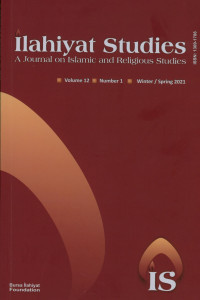Classical Foundations of Islamic Educational Thought: A Compendium of Parallel English-Arabic Texts, selected and introduced by Bradley J. Cook, with assistance from Fathi H. Malkawi
First paragraph: The importance of this book rests not only in its collection of key classical texts on Islamic education, but equally significant is the introduction by Cook to the book. Here, Cook made a risky but yet worthy attempt to summarize the long and nuanced histories of Islamic education in mere 26 pages. This attempt is worthy due to his conviction that the study of modern Western intellectual foundation is not possible without understanding the Muslim educational enterprise during its classical period. The phenomenal development of these Muslim traditions provided the basic foundations of the Western intellectual tradition. “Islam”, Cook asserts, “not only bridged early Greco-Hellenistic intellectualism to medieval European scholasticism but also contributed to and improved the corpus of knowledge in medicine, astronomy, philosophy, mathematics, music, architecture, cartography, and geometry. Islamic society can also be credited for conserving and transmitting large bodies of knowledge from Arabic into Latin and promulgating them throughout Europe.” For this reason, the attempt is indeed worthy and important.
Classical Foundations of Islamic Educational Thought: A Compendium of Parallel English-Arabic Texts, selected and introduced by Bradley J. Cook, with assistance from Fathi H. Malkawi
First paragraph: The importance of this book rests not only in its collection of key classical texts on Islamic education, but equally significant is the introduction by Cook to the book. Here, Cook made a risky but yet worthy attempt to summarize the long and nuanced histories of Islamic education in mere 26 pages. This attempt is worthy due to his conviction that the study of modern Western intellectual foundation is not possible without understanding the Muslim educational enterprise during its classical period. The phenomenal development of these Muslim traditions provided the basic foundations of the Western intellectual tradition. “Islam”, Cook asserts, “not only bridged early Greco-Hellenistic intellectualism to medieval European scholasticism but also contributed to and improved the corpus of knowledge in medicine, astronomy, philosophy, mathematics, music, architecture, cartography, and geometry. Islamic society can also be credited for conserving and transmitting large bodies of knowledge from Arabic into Latin and promulgating them throughout Europe.” For this reason, the attempt is indeed worthy and important.
Keywords:
Islam, Education, Parallel English-Arabic Texts by Bradley J. Cook,
- ISSN: 1309-1786
- Başlangıç: 2010
- Yayıncı: Bursa İlahiyat Vakfı
Sayıdaki Diğer Makaleler
İslam İktisadını Yeniden Düşünmek, edited by Taha Eğri, Oğuz Karasu, and Necmettin Kızılkaya
Practical Theology and Its Importance for Islamic Theological Studies
An Analysis of the Content of Waḥdat al-Wujūd: the Relationship between Essence and Existence
From Democracy to Despotism: Tocqueville on Slavery, Colonialism, and “Other”
